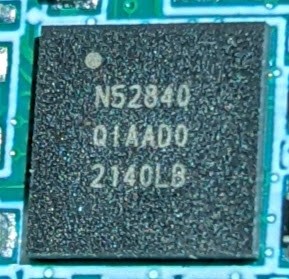Hi,
I have been using I2C code for almost a year to talk to a variety of sensors with complete success. Typically, we have used a Nordic BL654 module that includes an nRF52840. Recently we replaced this module with a nRF52840 chip. I2C and other usage remained identical. We built 30 boards. On approx 5 of these boards, I2C worked and then stopped working. Sometimes a power cycle recovers I2C support for a while before it fails again and sometimes it does not (I2C stays broken). Putting a scope on the SCL and SDA pins shows DC 300 mV and 3.3 Vdc on each of these pins respectively when I cycle through I2C reads and writes that work on other boards just fine. In code, TWI timeouts occur. My hardware engineer suggests that the chip is the issue. Note that it still runs code and its other interfaces seem to work fine.
Also important - we purchased the 52840 chips through the grey market. Welcome to 2022.... sigh. I have included a pic showing the chip numbers below:

Could this chip be an eng sample or pre-release on which this kind of issue may be expected? Is there any version of the 52840 that exhibited this kind of behavior?
Thanks in advance.
Regards,
Mark J
